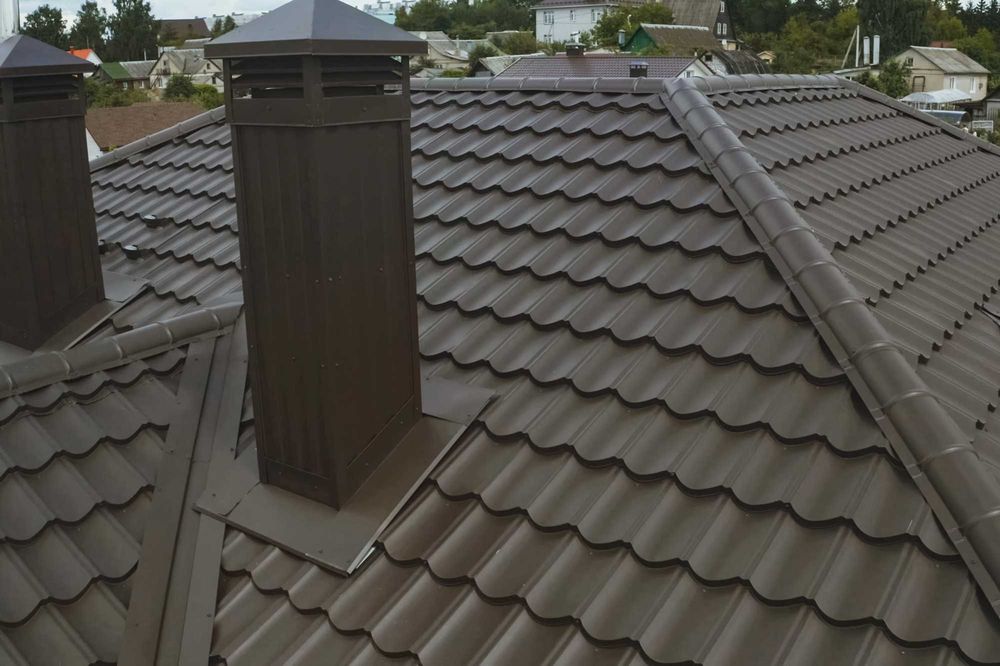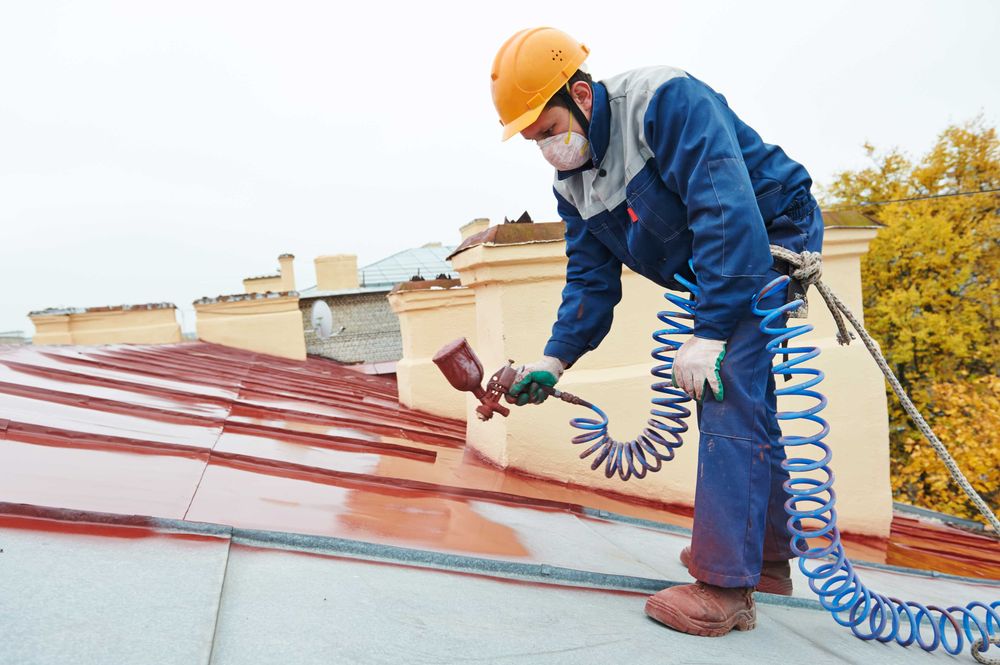Choosing the best roofing material is essential for the durability and look of your home. Metal roofing offers significant benefits, from energy efficiency to longevity, but it also has some drawbacks. This guide explores the pros and cons of metal roofing, providing the insights you need to make an informed choice.
Are you looking for professional roofing services? Learn more about our metal roofing service at ELK Roofing, Solar, Exteriors.

What to Know About Metal Roofing: A Quick Overview
Metal roofing has become popular for residential and commercial use due to its strength and energy-saving benefits. Available in materials like steel, aluminum, and copper, metal roofing offers a wide range of styles to match various architectural tastes. Let’s look at the benefits of metal roofing and what you should consider before installation.
Types of Metal Roofing Materials
- Steel – Durable, often with protective coatings.
- Aluminum – Lightweight and corrosion-resistant, ideal for coastal areas.
- Copper – Unique and develops a patina over time.
- Zinc – Eco-friendly and highly resistant to corrosion.
Each type of metal roofing has unique advantages and costs, so choosing the right one depends on your needs and location.
The Pros of Metal Roofing
Exceptional Durability and Longevity
One of the most valued benefits of metal roofing is its long lifespan. A professionally installed metal roof can last 50 years or more, significantly outlasting traditional shingles. This durability comes from metal’s resistance to common threats, including:
- Rot and insect damage
- Fire resistance
- Strong wind and hail resistance
- UV protection from the sun
These features make metal roofing ideal for areas with severe weather conditions, and the extended lifespan can mean fewer replacements over the years.
Energy Efficiency
Metal roofing is also highly energy-efficient, especially in warmer climates. Here’s how:
Reflective Properties – Metal roofs reflect solar heat, reducing the amount of energy needed to cool your home.
Enhanced Insulation – Many metal roofing options can be paired with additional insulation.
Cool Roof Coatings – Specialized coatings further boost the roof’s energy efficiency.
According to the U.S. Department of Energy, reflective roofing materials like metal can help reduce cooling costs by up to 10–15% in warmer months, making metal roofing a smart choice for homeowners focused on energy savings and environmentally friendly choice
Metal roofing is an eco-friendly option, contributing to sustainability in several ways:
Recyclable Materials – Many metal roofs are made from recycled materials and are 100% recyclable at the end of their lifespan.
Reduced Landfill Waste – The long lifespan of metal roofs means fewer replacements, reducing landfill waste.
Energy Savings – Energy-efficient roofing like metal can help lower carbon footprints over time.
Design Versatility
Modern metal roofing comes in many styles and colors, allowing homeowners to choose a look that complements their home’s architecture. From contemporary standing seam panels to traditional-looking metal shingles, metal roofing can add style and value to a home.
The Cons of Metal Roofing
While metal roofing has many advantages, there are also some drawbacks to consider.
Higher Initial Cost
Metal roofing generally has a higher upfront cost compared to materials like asphalt shingles. However, when you consider the longer lifespan, lower maintenance costs, and energy savings, metal roofs can offer good value in the long run. They may even increase your home’s value and curb appeal.

Noise Concerns
A common concern with metal roofs is noise during heavy rain or hail. However, proper installation and insulation can significantly reduce noise levels, making a metal roof as quiet as other types of roofing. Consulting with an experienced roofing contractor is essential to ensure the right materials and installation techniques are used to dampen noise.
Expansion and Contraction
Metal expands and contracts with temperature changes, which can cause challenges if not managed correctly. Professional installation, using flexible fastening systems and specialized materials, can help accommodate this natural movement. When properly installed, expansion and contraction should not pose a problem.
Potential for Denting
While durable, softer metals like aluminum can dent under extreme weather conditions, such as hailstorms. However, most high-quality metal roofing products are designed to resist denting and impact damage, offering better protection against heavy weather events.
Metal Roof Considerations
Considering the pros and cons of metal roofing is essential, but it’s equally important to understand other factors that could impact your decision. Here are a few additional considerations:
Local Climate and Weather Patterns
Your region’s climate affects how well a metal roof will perform. For instance:
- In coastal areas, aluminum is a popular choice due to its resistance to salt corrosion.
- For areas with frequent hail, a thicker metal or impact-resistant coating may be best.
- Consider weather patterns that may influence roof expansion and contraction.
The Federal Emergency Management Agency (FEMA) recommends metal roofs in high-risk fire and wind areas because of their superior durability and safety features.
City with Your Home’s Architecture
The pitch, design, and structure of your home will influence the type of metal roofing that will work best. Factors to think about include:
Roof Pitch – Low-pitched roofs benefit from certain metal styles like standing seam.
Design Complexity – Complex roof shapes may require more customization, increasing installation costs.
HOA and Local Building Codes
Some neighborhoods and homeowners’ associations (HOAs) have regulations regarding roofing materials and colors. Additionally, local building codes may specify certain requirements for roof installation, especially in high-risk areas. Checking these regulations beforehand will ensure your roof meets all local standards.
The Importance of Experienced Installation
Choosing the right contractor is crucial to get the most out of your metal roof. A skilled installer will know how to manage details like expansion, noise reduction, and fastener types. At ELK Roofing, Solar, Exteriors, our team has extensive experience with metal roofing and will ensure your roof is installed with precision for lasting results.
Is Metal Roofing Right for You?
Deciding if metal roofing is a fit for your home depends on weighing the initial investment against long-term benefits. If energy savings, longevity, and aesthetic flexibility are priorities, metal roofing may be the ideal choice. While the upfront cost can be a consideration, the durability and eco-friendly benefits make it an attractive option for many homeowners.
Making the right choice for your roof is easier with guidance from experienced roofing professionals. At ELK Roofing, Solar, Exteriors, our team is ready to provide expert advice tailored to your unique needs and budget. Ready to explore metal roofing? Get a free estimate now and let our experts guide you through the process of selecting and installing a high-quality roof that meets your expectations.


